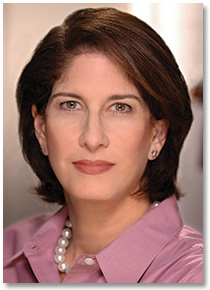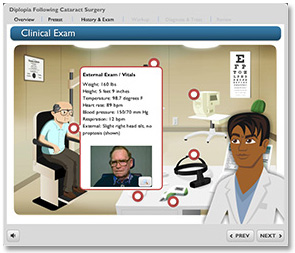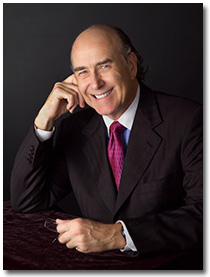Download PDF
WHAT'S HAPPENING
Attend the Mid-Year Forum
 |
| MYF AWARDS BANQUET. Mara Liasson, national political correspondent for National Public Radio, will give the keynote address on “Politics and Elections” on April 16. |
The Academy’s 2015 Mid-Year Forum (MYF) is April 15-18 at the Marriott Marquis in Washington, D.C. This annual forum provides an opportunity for Academy members and leaders, as well as leaders of allied ophthalmic organizations, to identify and discuss critical issues facing ophthalmology. Be sure to attend in order to contribute to Academy policy development, learn more about Academy activities and initiatives, and make an impact on legislation.
Meet your legislators on Capitol Hill. Congressional Advocacy Day (CAD) kicks off the meeting with a dinner briefing on April 15 to prepare attendees for their April 16 appointments with members of Congress. CAD strengthens ophthalmology’s voice on Capitol Hill, builds support for key legislative issues, and ensures that federal laws and regulations promote quality eye care for patients.
Practical information at the MYF. The MYF features health policy and practice management advice. It opens with Under Pressure: Payment Trends in the Insurance Marketplace. Additional sessions cover EHRs in 2015, compounding, evaluating payer contracts, and surviving audits; and the closing session is titled New Era in Quality Reporting—Patient Outcomes All the Time.
New this year. LEAP Forward is a new session for residents and fellows attending the MYF via the Advocacy Ambassador Program. It will cover leadership, engagement, advocacy, and practice management.
Register now. The MYF registration fee is $250, which includes all materials and most meals. The last day of advance registration is March 20; after that, you must register onsite. Registration for CAD is free—you can attend it without attending the MYF.
Learn more at www.aao.org/myf.
TAKE NOTICE
New App Makes Reading Easier for Low Vision Patients
Howard Kaplan, MD, has developed Spotlight Text, an iPad app that the Academy’s Vision Rehabilitation Committee recommends for low vision patients. The app was developed to make e-books accessible to patients with varying degrees of low vision by providing customizable font size, contrast, and dynamic presentation modes. Available on iTunes, the app works with Bookshare, a digital library containing more than 300,000 titles for people who cannot read standard print because of a visual impairment, physical disability, or learning disability. Spotlight Text integrates with Apple’s Voiceover feature, can be used with braille readers, and can be shown on an HD television for extra-large text.
For a limited time, one-third of the Spotlight Text sales will be donated to support the Foundation of the American Academy of Ophthalmology.
To download, visit www.itunes.com/store and search for “Spotlight Text.” To learn about other low vision apps, visit www.geteyesmart.org.
Read the 2014 Year in Review
Be sure to find out what the Academy has achieved in the last year on all fronts, including advocacy, education, public service, and more. The 2014 Year in Review: 19 Ways the Academy Is Supporting Your Education, Your Practice, and Your Patients provides answers to the following:
- What surgical simulator did the Academy create in 2014?
- What new services were launched to help members streamline their business practices and save money?
- What did we do to help increase patient compliance and improve health outcomes?
- What legislative victories did the Academy win?
- What significant aggregate patient statistics have been revealed from the first year of the IRIS Registry?
- And more.
To view, visit www.aao.org/yearinreview in early March.
Ask the Ethicist: Patients Who Request No Resident Involvement
Q: A 68-year-old patient presented with a case of year-long blurry vision in both eyes. Upon examination by the resident, the patient was found to have bilateral cataracts, which were responsible for her decreased vision. The resident explained the condition to the patient as well as the risks and benefits of and alternatives to cataract surgery. The patient wished to proceed with surgery but requested that the resident not participate. In such a scenario, is it ethical to have the resident perform any part of the patient’s surgery?
A: No, it is not ethical. Disregarding the patient’s wishes and allowing the resident to perform any part of the surgery without consent could be considered battery in the legal arena. It also violates the patient’s trust and can potentially be construed as misrepresenting the services provided to the patient. This situation is common in teaching institutions and can be handled in several different ways. It is important to explain the role of the resident or fellow and to be completely transparent and forthcoming regarding the nature of their involvement. If, after this conversation, the patient still refuses to allow the resident or fellow to be involved in the surgery, then the attending physician must perform the surgery or refer the patient to another provider.
For more information, see Principles 2 and 4 and Rules 2 and 9 of the Code of Ethics at www.aao.org/ethics.
To submit a question, contact the Ethics Committee staff at 415-561-8500 or ethics@aao.org.
 ONE SPOTLIGHT: Test your clinical decision making. For patient simulations based on real-world scenarios, visit the ONE Network. Each case covers every step of a clinical encounter, from assessment through treatment. Review the patient’s history and symptoms, conduct an exam, choose diagnostic tests, and find out if your diagnosis and treatment strategy are appropriate. Recent cases include: ONE SPOTLIGHT: Test your clinical decision making. For patient simulations based on real-world scenarios, visit the ONE Network. Each case covers every step of a clinical encounter, from assessment through treatment. Review the patient’s history and symptoms, conduct an exam, choose diagnostic tests, and find out if your diagnosis and treatment strategy are appropriate. Recent cases include:
- Sugar Junkie: A 52-year-old diabetic woman presents with dull ache, variable vision, and redness in one eye.
- Blindsided: A 74-year-old man experiences rapid, painless, progressive visual loss in one eye while watching TV.
To view these and other cases, visit www.aao.org/one.
|
ACADEMY STORE
Demonstrate Your Ophthalmic Coding Competency
Prove that your knowledge of ophthalmic coding is up to date by passing the online Ophthalmic Coding Specialist (OCS) Exam—the only ophthalmology-specific coding exam available. Be confident that you have the coding skills to maximize reimbursements and have documentation skills that will stand up against audits. The open-book online exam includes 100 questions on every aspect of ophthalmic coding. When you pass, your OCS designation will be good for three years. To prepare for the exam, consider 2015 Ophthalmic Coding Series: Essential Topics (#0120361) and Specialty Topics (#0120362V), a collection of six downloadable PDF modules.
For details and to register for the exam, visit www.aao.org/ocs.
MEETING MATTERS
Abstract Submission Deadlines: Papers/Posters and Videos
If you are interested in presenting at AAO 2015 in Las Vegas, you must submit your abstracts online. The online abstract submitter for paper/posters and videos opens on March 12 and closes on April 14.
To review the guidelines, visit www.aao.org/presentercentral.
Visit the Academy at APAO and ASCRS/ASOA
View the latest Academy products or resolve your membership questions at the Academy’s booth during the following ophthalmic meetings:
- Asia-Pacific Academy of Ophthalmology: 2015 Congress. April 1-4, Guangzhou, China.
- American Society of Cataract and Refractive Surgery: 2015 ASCRS/ASOA Symposium & Congress. April 17-21, San Diego. Booth 917.
MEMBERS AT LARGE
Celebrating Commitment to YOs and Advocacy
On Jan. 29, Daniel J. Briceland, MD, Academy Senior Secretary for Advocacy, presented Wills Eye Hospital and its leadership, Julia A. Haller, MD, and Tara A. Uhler, MD, with the Academy’s inaugural Commitment to Advocacy award during the Association of University Professors of Ophthalmology (AUPO) Annual Meeting.
Dr. Briceland said, “Our Secretariat for State Affairs implemented this award to recognize training programs’ commitment to the Academy’s Advocacy Ambassador Program. The next generation learns about the importance of political action and involvement in organized ophthalmology at both the state and national levels. This program also leads to an increase in OphthPAC and Surgical Scope Fund contributions, effective testimony during state legislative battles, and a pool of potential candidates for leadership positions within state societies as well as the Academy.”
The Academy established its Advocacy Ambassador Program to educate residents and fellows about the importance of political action and involvement in organized ophthalmology at both the state and national levels.
Passages
 |
| Dr. Waring. |
George O. Waring III, MD, FACS, passed away on Jan. 27. He was 73.
An influential figure in refractive surgery, Dr. Waring was a principal investigator in the Prospective Evaluation of Radial Keratotomy (PERK) trial, the first formal clinical study of refractive surgery. As National Director of the trial, he recruited nine centers, and continued the work for 15 years. Dr. Waring was also Editor-in-Chief of the Journal of Refractive Surgery (JRS) from 1989 to 2010. During his tenure, the journal became a monthly publication, the number of submissions per year tripled, and the “impact factor” grew as JRS citations increased from hundreds per year to thousands.
As H. Dunbar Hoskins Jr., MD, former Executive Vice President of the Academy, said at Dr. Waring’s retirement, “Your footsteps in the sands of time will not be erased and will be followed to even newer and greater innovations that will help our patients.”
D.C. REPORT
Academy Fights for Health Plan Network Adequacy
The Affordable Care Act and subsequent competition among plans have led to network adequacy concerns. Over the past year, ophthalmologists and other specialists have suffered because plans have significantly narrowed their physician networks and implemented other cost-control tactics. These actions have adversely affected patients, too.
QHPs. Qualified Health Plans (QHPs) offered in state insurance exchanges must meet network adequacy standards—but who decides what is adequate? That requirement was intended to ensure that enrollees have timely access to a variety of in-network primary care and specialty care physicians, as well as other health care services, but nearly half of QHPs entered the marketplace with narrow networks. This prompted a backlash from patients and practitioners. The federal government responded with a commitment to review network adequacy. State regulators, however, want these assessments to continue to be handled at the state level. To this end, the National Association of Insurance Commissioners (NAIC), which represents state regulators, released a draft of an updated model policy for states for comment.
A full range of providers. Because many QHPs mistakenly assume that all ophthalmologists can provide all services, these plans should be revised to include a full range of comprehensive ophthalmologists and subspecialty providers without administrative or cost barriers. The Academy is calling for standards that adequate networks must meet, and it is working closely with state ophthalmology and subspecialty societies, particularly retina, glaucoma, and oculoplastics, to ensure access for patients.
Medicare Advantage plans. In a parallel effort targeting Medicare Advantage plans, the Academy is capitalizing on some initial 2014 wins with an aggressive lobbying campaign in 2015.
- 2014 wins. In its 2014 instruction (“Call”) letter, the Centers for Medicare & Medicaid Services (CMS) outlined the requirements that plans must meet. It called for earlier notice to beneficiaries if their physician(s) will be dropped from the plan and a more formal adequacy plan for review by CMS when there are significant Medicare Advantage plan network changes. In addition, Medicare Advantage plans must provide enrollees with up-to-date information on in-network providers as well as information on how they can request ongoing treatment with their current provider.
- 2015 campaign. The Academy will focus on Congressional legislation (HR 4998 and SB 2552) to further safeguard network adequacy in Medicare Advantage plans. These provisions include preventing the plans from dropping providers without cause during the middle of the year, requiring the plans to finalize their provider networks 60 days in advance of the annual enrollment period, and increasing transparency of the measures Medicare Advantage uses to decide on a plan’s providers.